Tuesday, February09, 2021 / 8:26AM / by Coronation Research / Header ImageCredit: Pexels
Whatwill be the Federal Government of Nigeria's (FGN) next move when it comes tofinancing its deficit? Movements in the foreign exchange and open marketoperation (OMO) markets last week prompted market comment that Nigeria iscourting foreign portfolio investment (FPI) to participate in Nairainstruments. This may be true, but today's market conditions suggest theEurobond market, where conditions are good, in our view.
FX
Lastweek the exchange rate in the Investors and Exporters Window (I&E Window)weakened by 0.71% to N395.93/US$1. In the parallel, or street market, the Nairaremained unchanged to close last week at N480.00/US$1. Gross external reservesinched up to $36.11bn as of 3 February, providing some reassurance as theCentral Bank of Nigeria (CBN) has set a target of $40.0bn in external reserves.The CBN's plans to settle non-deliverable forwards (NDF) dated 24 February atN412.14/US$1 and the recent weakness of the Naira in the I&E window (albeitvery slight) is being interpreted by some market participants as preparationfor an exchange rate adjustment. Against this, we recall that central banks areoften in a good position to wrong-foot the market. However, there were severalsmall-step adjustments in the exchange rate last year and it is perfectlypossible for these to continue this year.
Bonds & T-bills
Lastweek, the secondary market yield for a Federal Government of Nigeria (FGN)Naira bond with 10 years to maturity declined by 21 basis points (bps) to 8.87%and at 7 years declined by 35bps to 8.37% while at 3 years the yield declinedby 14bps to 6.11%. The annualised yield on a 356-day T-bill declined by 28bpsto 1.49%, while the yield on a 263-day OMO bill remained at 2.32%. The fall inyields in the bond market went against the trend we have seen since mid December, though we must remember that local investors are still quiteliquid, so occasional rallies like this are to be expected. News was largelyfocused on a series open market operation (OMO) bills that were released withannualised yields just above 10.0% at 1-year, with market participants comingup with various interpretations (moving yields to a level attractive forforeign investors, signaling an adjustment in the foreign exchange rate, etc).All we can say with reasonable certainty is that, thus far, the CBN is notaverse to market interest rates going up.
Oil
Theprice of Brent crude rose by 5.31% last week, closing at US$59.34/bbl, a 14.56%increase year-to-date. The average price to year-to-date is US$55.87/bbl,22.64% higher than the average of US$43.22/bbl in 2020. The Saudi Arabianpledge of extra supply cuts in February and March on the back of reductions byOPEC+ (OPEC plus Russia) is another positive factor. Strong crude prices areencouraging US producers to increase output even as Covid-19 related lockdownsacross parts of Europe and Asia put downward pressure on demand. Our view thatBrent is likely to trade in a range of US$45.00/bbl to US$60.00/bbl this yearmay soon be challenged, though a rise above US$60.00/bbl could prompt someOPEC+ members to pump more oil, in our view.
Equities
TheNigerian Stock Exchange All-Share Index (NSE-ASI) fell by 1.66% last week witha gain of 3.57% year-to-date. MRS (+8.94%), Unilever Nigeria (+8.15%), and GTBank (+4.35%) closed positive last week, while Lafarge Africa (-11.17%), FlourMills of Nigeria (-9.37%) and Oando (- 9.15%) closed negative. The equitiesmarket reversed the previous week's bullish momentum. The reaction to the CBNpolicy affecting all bank accounts with affiliations to cryptocurrency tradingmight have had an indirect impact on the performance of the market on Friday,in our view. It is also possible that investors are reacting to the trend inmarket interest rates, even though bond yields remain well below inflation.
Eurobonds and Foreign Financing
Overthe weekend Bloomberg featured a discussion about the rates of a recent seriesof CBN open market operation (OMO) bills, which exceeded 10.0% at one yearduration. This, it was argued, could pave the way for an adjustment in theNaira/US dollar exchange rate which would, in turn, encourage foreign investorsto purchase OMO bills again. Sales of OMO bills to foreign investors has been akey part of public sector financing in recent years.
Ourissue with this line of reasoning is that foreign portfolio investment (FPI)depends on liquidity, as well as attractive interest rates and a solid exchangerate. Typically, a foreign investor's purchase of OMO bills is backed with apurchase of non-deliverable forwards (NDF) for which the investor is paid backin Naira. The conversion back into US dollars depends on foreign exchangeliquidity and this, in our view, is difficult to fix. It is not impossible tofix it (it would help if an exchange rate adjustment convinced the markets thata period of exchange rate stability lies ahead) but for the time being we thinkthat issuing Eurobonds would be the better way of using foreign investors tofinance the public sector.
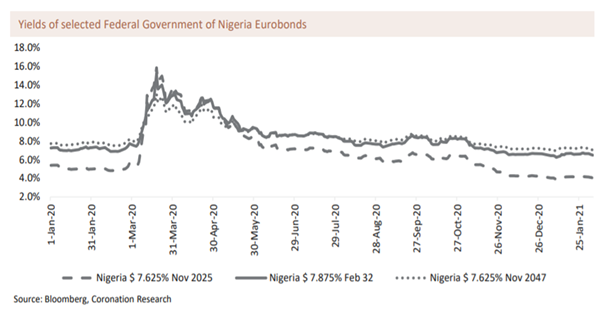
Anargument against the Federal Government of Nigerian (FGN) issuing Eurobonds,until recently, was that their yields were higher, in US dollars, than those ofFGN bonds in Naira. This was true up until December 2020, but since then yieldsof FGN Naira-denominated bond have risen sharply, so the interest cost ofissuing US dollars is now lower than Naira. Exact comparisons between durationsare difficult (because issues of FGN Eurobonds are few and far between) but thefollowing may serve as a guide: a 5-yr FGN US$ Eurobond yields 3.97% while a5-yr FGN Naira bond yields 7.49%; a 12- year FGN US$ Eurobond yields 4.88%while a 10-yr FGN Naira bond yields 8.73%.
However,for the FGN to fund its deficit substantially in US dollars would expose it toa high level of foreign exchange risk. As a rule, it is best for countries toborrow in their own currencies unless for the purpose of diversification. As aresult of adhering to this maxim the outstanding face value of FGN public debtin US dollars is small in comparison with what it owes in Naira. At the end oflast week, the total face value of FGN T-bills was N2,207bn and the total facevalue of FGN bonds was N10,883bn. The total face value of FGN Eurobonds wasUS$10,668 million. So, using an exchange rate of N395.9/US$1, the face value ofthe FGN's Naira public debt to its US dollar public debt stood at a ratio of3:1.
Asan aside, Nigeria was widely judged to have missed the boat this time last yearwhen it was slow to come to the market with a Eurobond issue. In the firstmonths of 2020 Ghana and Gabon issued a total of US$3.0bn in Eurobonds betweenthem before Nigeria could get to the market. Nigeria has been absent from thenew issue market for over two years, and we believe a sale would be welcomednow.
Allthis is good news for investors in FGN Eurobonds. Nigerian Eurobonds notover-supplied and the country has a good track record in paying back bothinterest and principal. In January, for example, Nigeria paid back theprincipal of a US$500m Eurobond. And the so-called global hunt for yield(investors tolerating high-risk and high-yield issuers when interest rates indeveloped markets are extremely low) keeps investor interest high, withNigeria's yields trending down over recent months.
Model Equity Portfolio
Lastweek the Model Equity Portfolio fell by 0.66% compared with a fall in theNigerian Stock Exchange All-Share Index (NSE-ASI) of 1.66%, therefore outperformingit by 100 basis points. Year to date it has gained 3.57% against a gain in theNSE-ASI of 3.57%, underperforming it by 8bps.
Severalfactors worked in our favour last week. First, two mid-cap stocks which hadperformed very well in January, and in which we do not have notional positions,fell, notably Lafarge Africa and Flour Mills of Nigeria. At the same time themarket seemed unusually enthusiastic about GT Bank, in which we do have anotional position. We cannot expect to be this fortunate every week.
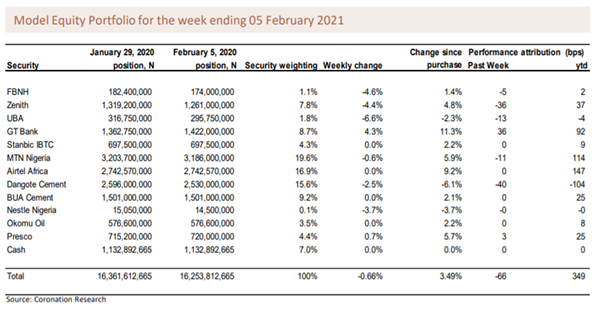
Wecontinue to search for ideas and do not rule out taking notional positions insome mid-cap stocks, especially if their prices correct. On the other hand, wefind the market somewhat pricey at these levels and will take a degree of profitsin some of the largest stocks by index weight, as we did during the first weekof January. We will make small notional sales in Airtel Africa, MTN Nigeria,Dangote Cement and BUA Cement this week with a view to raising our notionalcash position by between one and three percentage points.
Relatedto Coronation
2. NigerianGDP Better Than Thought
6. Oil Above US$50.00 per Barrel
9. CBN Likely to Leave MPR at 11.50%
10. Second-best Equity Market in the World
11. TheBiden Effect
12. US Dollar Eurobond Yields Now HigherThan Naira Yields?
13. Fiscal and Monetary Response toEvents
14. Winners and Losers in Africa
15. The Return of the Equity Market
16. Which Way for Interest Rates?
17. Coronation Research Releases Report Themed: From Savings toMutual Funds
18. A Case of Eurobond MarketContagion
20. The Policy Mix and The Markets
21. The Oil Price and ProductionParadox
22. Cracks In The Bond Market?
23. No Big Change in FX Policy
24. Coronation Research Releases Outlook for Insurance Sector -From Lagoon To The Blue Ocean
25. Micro-Insurance, Tech, Key toDeepening Nigeria's Insurance Sector - Coronation Research
26. Navigating the Capital Market:The Investors' Dilemma
27. Market Interest Rates Back Up- Coronation Research
Related to Eurobonds
1. NigeriaRedeems USD500m Eurobond - DMO
2. A Caseof Eurobond Market Contagion
3. SSAEurobond Market: Is Recovery in Sight?
4. USDollar Eurobond Yields Now Higher Than Naira Yields?
5. SSA Eurobond Market inH2-2020: Monetary Stimulus to Spur Market Recovery
6. Angola Lead TheSub-Saharan Africa Eurobonds With Nigeria Strengthening In The Shadows
7. Increase in Crude OilPrice Ignites More Interest in Nigerian Eurobond Market
8. Sub-Saharan EurobondsRallied Following Further Oil Production Cuts By Saudi Arabia
9. Nigerian EurobondsSustain Rally Momentum As Global Oil Prices Continue To Gain
10. DMO Request for EOI forthe Appointment of the Transaction Parties for the Issuance of FGN Eurobonds
11. Planned ExternalCapital Raising Is to Part Finance Budget 2020 Deficit and Maturing Eurobond
12. African Countries andEurobond Market: The Lovefest Continues in 2020?
13. African CountriesScramble for the Eurobond Market
Related News
1. Revised Trade PolicyVital to Attracting Investments into Nigeria - Wilson Erumebor
2. Is the EconomySpiralling? - LBS Executive Breakfast Session - February 2021
3. Total Value of CapitalImportation into Nigeria Stood at US$1,069.68m in Q4 2020 - NBS
4. Rebasing Nigeria's GDP:New National Accounts, More Services
5. Inflationary PressureStill Straining Pockets
6. The Hit to FGN Revenuefrom COVID-19
7. Rising InflationaryPressures Despite Weak Aggregate Demand
8. PMI Reading No 94:Familiar Seasonal Low in January 2021
9. Marginal Pick-up in theDecember 2020 FAAC Payout
10. Nigeria's DeficitMonetisation May Raise Macro-Stability Risks
 Lagos, NG • GMT +1
Lagos, NG • GMT +1










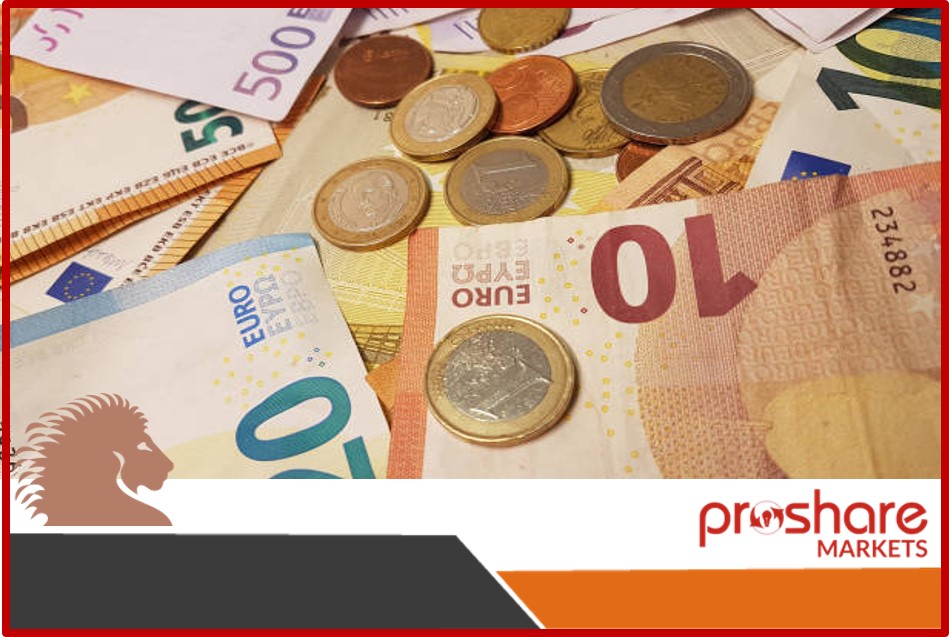
 1813 views
1813 views





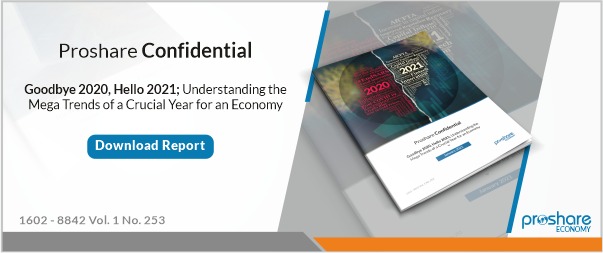
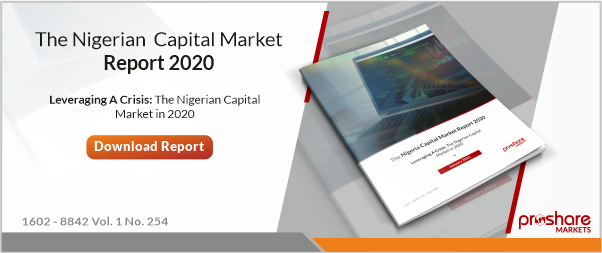





 Sponsored Ad
Sponsored Ad
 Advertise with Us
Advertise with Us









